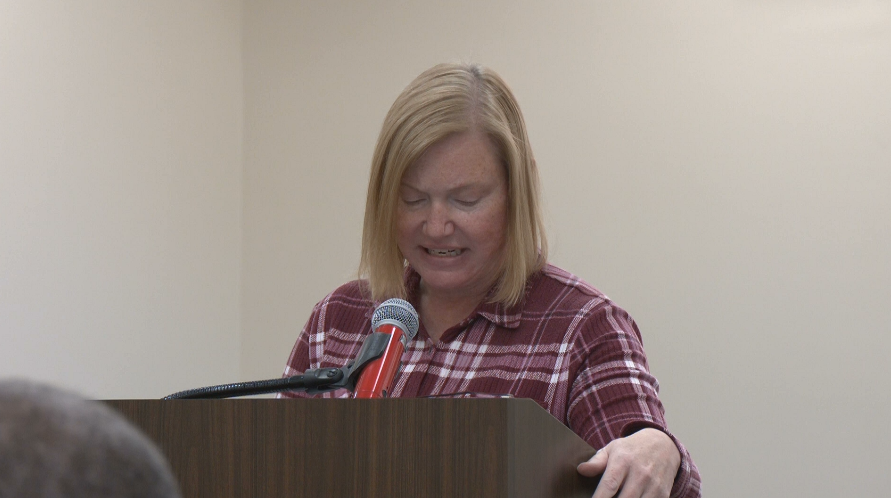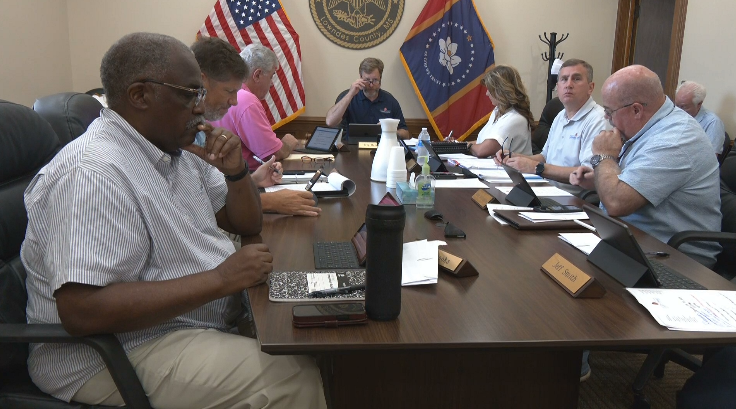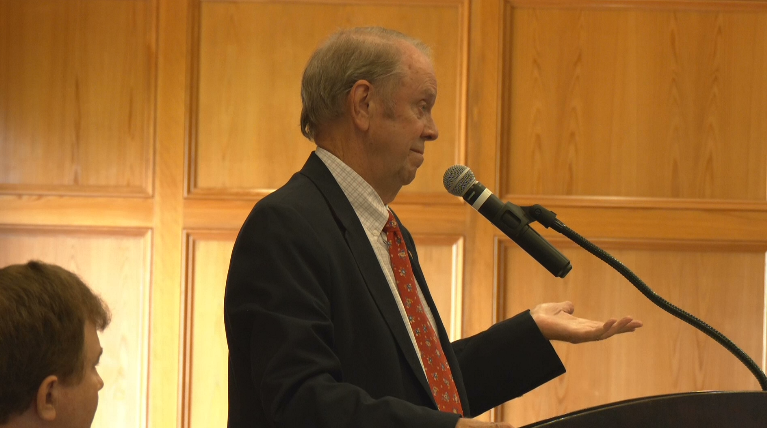Americans Mixed on Gay Marriage Issues
Roughly half the country also thinks local officials and judges with religious objections ought to be exempt from any requirement that they issue marriage licenses to gay and lesbian couples, according to the poll.
That view of the same-sex marriage issue echoes that of the Mormon church. Last week, the church called on state legislatures to pass new laws that protect gay, lesbian, bisexual and transgender people from discrimination but also to protect the rights of those who assert their religious beliefs.
David Kenney, a self-employed Catholic from Novi, Michigan, said he’s fine with same-sex marriage being legal. He’s among the 57 percent of Americans who said wedding-related businesses — such as florists — should be allowed to refuse service if they have an objection rooted in their religion.
“Why make an issue out of one florist when there are probably thousands of florists?” asked Kenney, 59. “The gay community wants people to understand their position, but at the same time, they don’t want to understand other people’s religious convictions. It’s a two-way street.”
Kenney isn’t alone. About a quarter of those who favor legal same-sex marriage also favor religious exemptions for those who issue marriage licenses, the poll finds, and a third say wedding-related businesses should be allowed to refuse service.
Geri Rice, who lives near San Francisco and works in law firm management, strongly favors gay marriage. She’s torn about whether a public official with religious objections should be exempt from issuing a license but says she believes that business owners should be allowed to tell somebody no thanks.
“I don’t like it,” Rice said, “but I think they have the right.”
Whether a business can refuse service to someone is a matter of federal, state and local law. National gay-rights groups called the idea of trying to carve out religious exemptions in anti-discrimination statues, such as those proposed by leaders of the Mormon church, deeply flawed.
James Esseks, who directs the LGBT project of the American Civil Liberties Union, said the First Amendment’s protection of religious freedom “does not give any of us the right to harm others, and that’s what it sounds like the proposal from the Mormon church would do.”
The poll found that 44 percent of Americans favor and 39 percent oppose legal same-sex marriage in their own states, while 15 percent expressed no opinion. But the country is evenly divided, 48 percent to 48 percent, on which way the Supreme Court should rule when it decides the issue for the entire nation this spring.
Gay marriage is legal in 36 states because of a flurry of recent federal court decisions.
In Utah County, south of Salt Lake City, clerk Bryan Thompson says he has strong personal opinions on same-sex marriage, but he doesn’t think those should influence how he performs his duties. His office initially waited to issue marriage licenses to same-sex couples in December 2013 after a federal judge in Utah struck down the state’s ban on gay marriage. Thompson said he had wanted more legal guidance from the state.
“I have a responsibility as a civil servant to follow the dictates of the law, regardless of my personal feelings or preferences,” Thompson said.





Leave a Reply